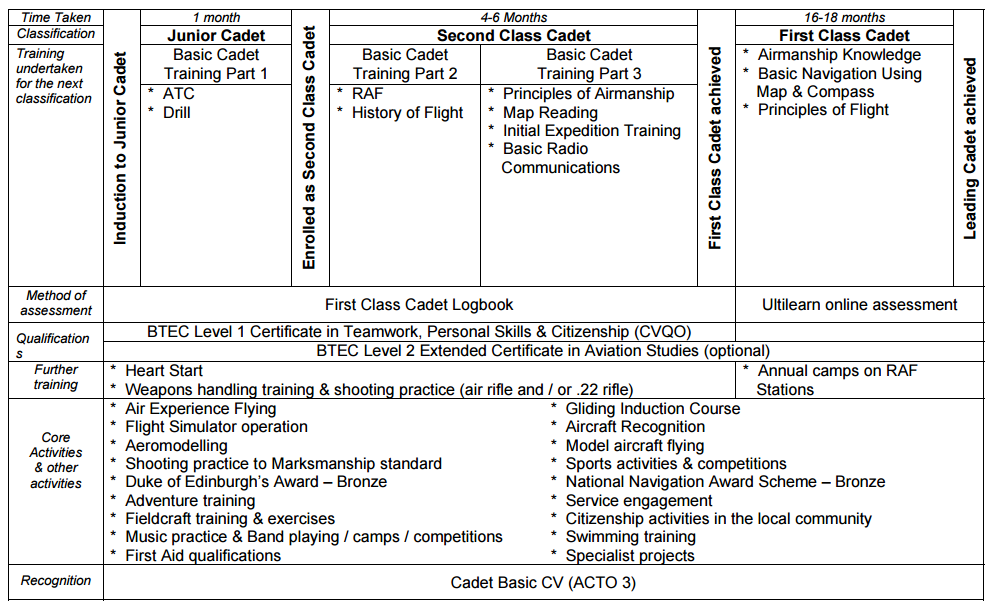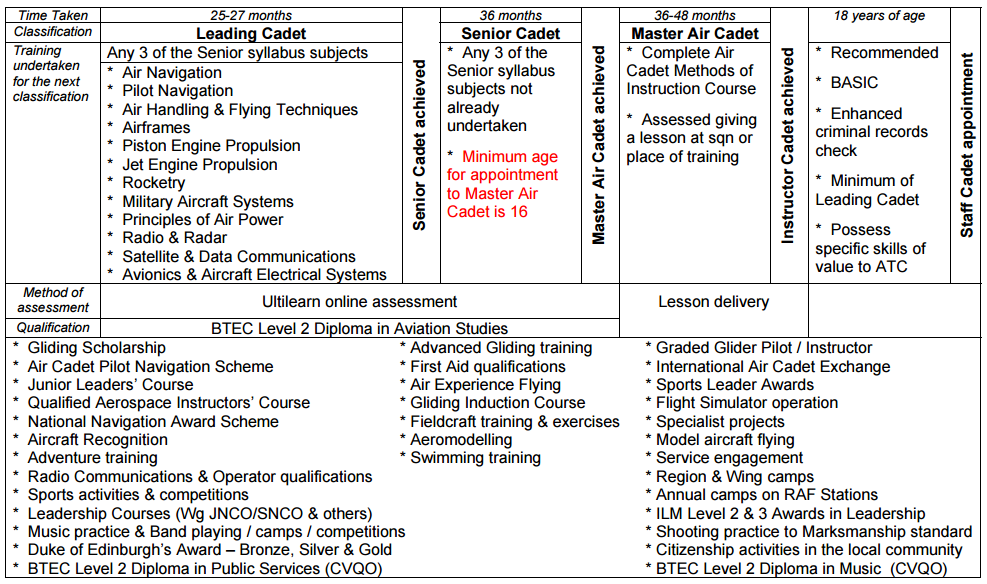There are a wide range of activities and experiences available to cadets at all age levels. All Squadrons deliver a formal training programme which is mandated by HQ Air Cadets so that cadets across the organisation have a similar training experience.
The Air Cadet syllabus of training provides:
The matrix below gives an overview of the complete syllabus from First Class level up to Master Air Cadet in the chronological order it should occur as a cadet develops through their cadet career.



In 2019 the RAF Air Cadet training syllabus course was officially recognised by the SCQF (Scottish Credit & Qualification Framework).
Cadets who complete “First Class” are awarded SCQF National Level 5 in Scotland (it will however have 4 credit points allocated compared to 24 for main stream course taught in school) and the certificate of award of SQA RAF Air Cadet Aviation Practice Level 1.
Cadet who then go to complete “Leading Cadet” will be awarded SCQF National Level 6 which is worth 21 credit points and the certificate of award of SQA RAF Air Cadet Aviation Practice Level 2. Although there is a different number of credit points awarded (21 versus 24), this qualification is at the same SCQF Level as a Higher in Scotland.

BTEC’s (Business and Technology Council) Awards are a very popular and widely recognised qualification across the UK. The Air Training Corps training syllabus allows cadets to be rewarded with diplomas in related subjects just for participating and completing our programmes.
470 runs a very active DofE programme where all cadets are registered at Bronze Level when they start with us. We have a great deal of success with the award scheme and it is one of the most popular aspects of our training programme.
The DofE has a positive impact on young people’s lives, in terms of their personal development and employability, and on wider society, from charities gaining active and engaged volunteers to businesses hiring work-ready recruits.
Find out more about the scheme at www.dofe.org

The Air Training Corps offers many avenues for young people to develop and leadership is an important part of what we do.
From simple team building activities at the local unit to formal training courses and the grueling Junior Leaders course there are lots of opportunities to develop.
If you make a positive contribution at your Squadron you may even be selected for promotion to a cadet non-commissioned officer and directly lead your fellow cadets.

There are many other qualifications that can be earned during your time in the ATC, both as an Air Cadet or a Civilian member of staff.
It is now compulsory for all cadets and staff to have an entry level first aid qualification. There has been a number of instances where our members have used their new skills to save a life so this is an extremely important programme.
Vocational qualifications are also available and we offer our volunteer staff the opportunity to develop and seek qualifications which help them professionally and as instructors.